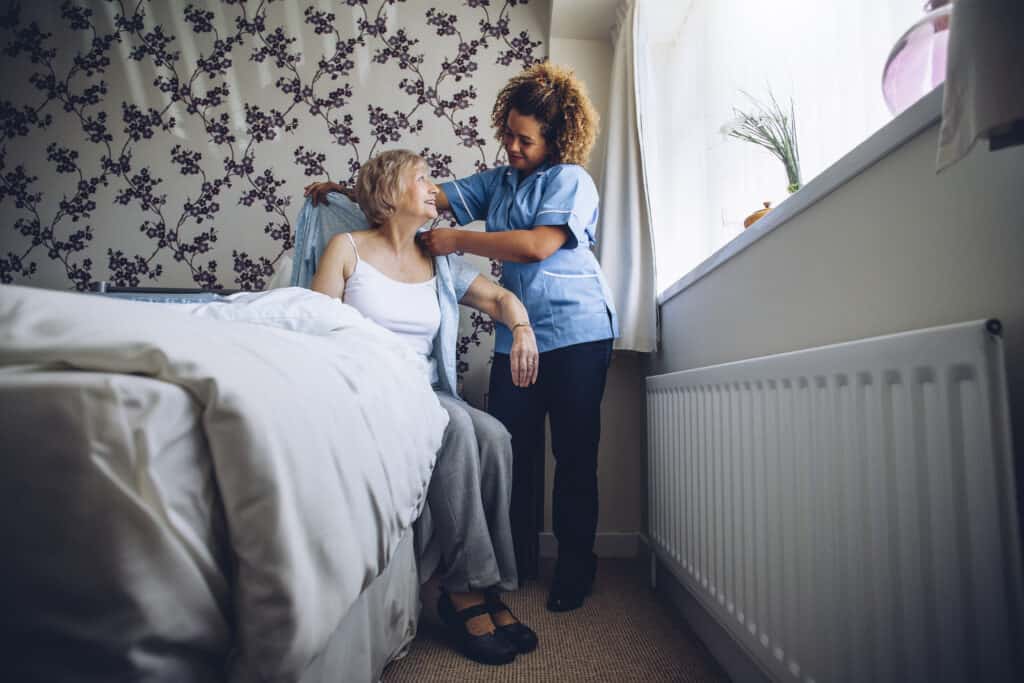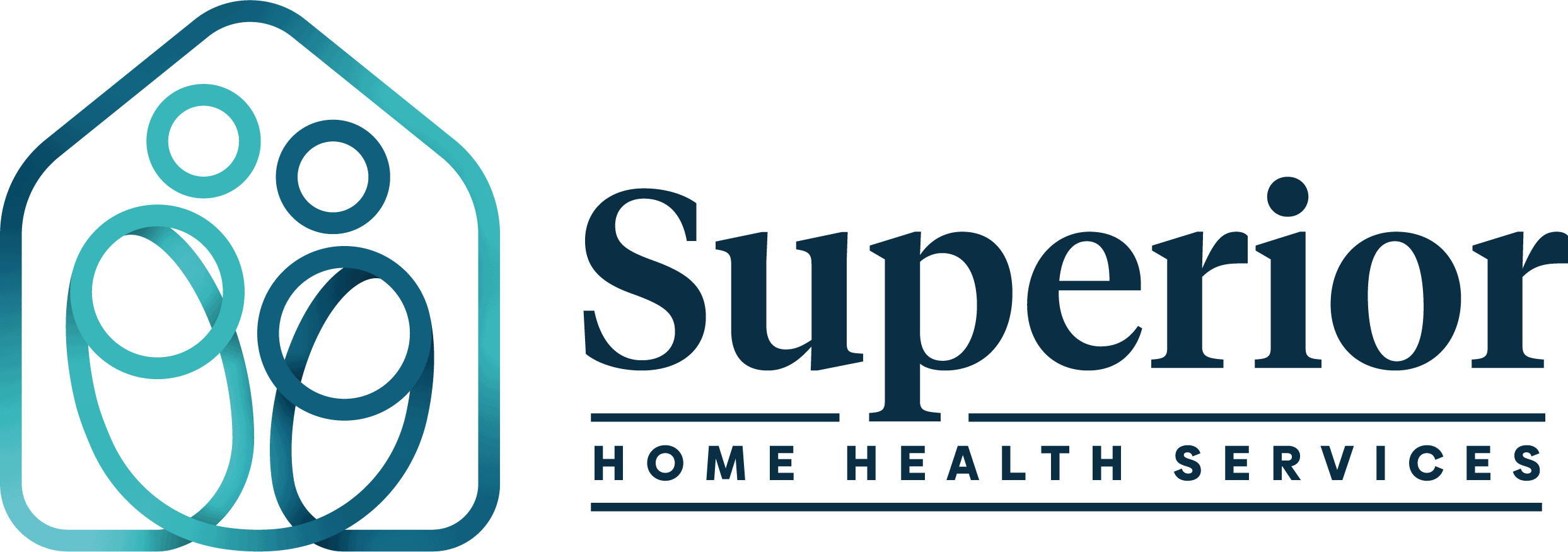
How to Know if Home Care is Right For Your Loved One
- Posted
Engaging in-home care for your loved one is a big, daunting decision and it can be a tricky choice to make. You may feel a lot of pressure being the person responsible for making these big decisions — and that’s a perfectly normal way to feel.
Obviously, there are so many different factors to consider and these will change with each different person’s personal circumstances. What kind of support do they need? How frequently do they need it?
We’re specialists in delivering in-home care and support to people who are aging, have a disability, or need medical or rehabilitative assistance.
What kind of support comes with in-home care?

At Superior Home Health Services at least, this is very much tailored to you. We’re here to provide the support you need to ensure you can live happily and healthily in the comfort of wherever you call home.
Personal Care
Your loved one can receive personal care assistance. It means support with getting dressed, ticking off hygiene items, taking medications and ensuring meals are eaten.
Domestic Support
Taking care of household chores can be really tricky as we begin to age and movement becomes more difficult.
As part of our in-home care service, we provide domestic support. Housework like washing, drying and folding, dusting and mopping, and gardening and mowing can all be taken care of for your loved one.
Community Access
We’ll give your loved one the right support to knock over those tasks like shopping for personal items and needs as well as grocery shopping. Your loved one will have a care provider to help them travel to and from these activities and complete them.
We can help your loved one with any community access needs they may have including any medical or allied health appointments too.
In-Home Nursing
An in-the-home nurse can help out with any medical or care needs your loved one may have. We’ll complete simple requirements like bandage and strapping changes as well as wound management, or support with taking the correct medications at the correct times.
Whatever you need!
We’re here to support you! Let us know exactly what you need support with and we’ll let you know what we can do to support you exactly how you need it.
Is in-home care better than a facility?

It absolutely depends on you! If you’re still functioning quite well and just need some additional support with items like community access and domestic support, then in-home care is probably ideal for you.
Whatever you need!
We believe how well in-home care will suit your loved one depends on their existing support network. If they don’t have family or friends nearby, then a facility may be more suitable.
This is because they can form their own support network in a facility. Don’t get us wrong though, we take a thoughtful approach to how we match you with your care providers. So, you’ll form a good relationship with them.
The biggest benefit of in-home care is receiving care on your terms in your own home, where you’re most comfortable.
How do I know if in-home care is suitable for me or my loved one?

The best way you can work out if in-home care is suited to your loved one is to chat with them, chat with us, and make an informed decision based on their support network, current needs, and anticipated future needs.
It’s about weighing up whether their needs are worth compromising their existing at-home comfort as well as what makes them feel most comfortable.
Then, be sure to keep checking in with them regularly to make sure they’re happy with the care they’re receiving and all the details of the care, like their care providers.
Signs your older relative needs at-home care

It can be tricky to identify when at-home care has become necessary for your relative or loved one.
So, what are the signs in-home care is necessary?
They’re experiencing memory problems
Small memory problems like forgetting why you walked into a room are not that big of a deal. Once your loved one starts forgetting to pay bills, attend appointments, take medication, or eat, then there may be some problems either currently, or on the horizon.
They’re having accidents or falls
Accidents at home or falling can indicate that your loved one isn’t in the best position to keep themselves safe as they travel through their home or complete specific tasks — like shopping, walking, or tidying up their home.
Their safety should be paramount and so falling may indicate they need some at-home support.
You’ve noticed their day-to-day tasks aren’t getting completed
A really clear sign that your loved one needs some support at home is that the tasks that should be getting completed aren’t. Whether it’s from a lack of motivation, difficulty completing the task, or mental fogginess, causing them to forget.
These day-to-day tasks can include bathing, grooming, hygiene, doing the washing, doing the dishes, or even taking their dog for a walk. More concerning day-to-day tasks might be taking medication or completing other self care items.
Their appearance or personality is beginning to change
A change in physical appearance is a really clear sign your older loved one may need some more support — either now or in the not-so-distant future.
That physical change can be in their face or facial features, how they hold their body and demeanour, or changes in hygiene or their weight.
It’s different for everyone but weight loss or weight gain can be a really good indicator they’re in need of some more support. Then there are behavioural changes like angry outbursts, lack of motivation, or isolating themselves.
We find not wanting to see friends or family or having less patience for family and particularly younger grandchildren can be a concern and may indicate they need more support.
—
Still not sure if your loved one needs support? Get in touch with our team or book a consultation today to discuss their needs.


